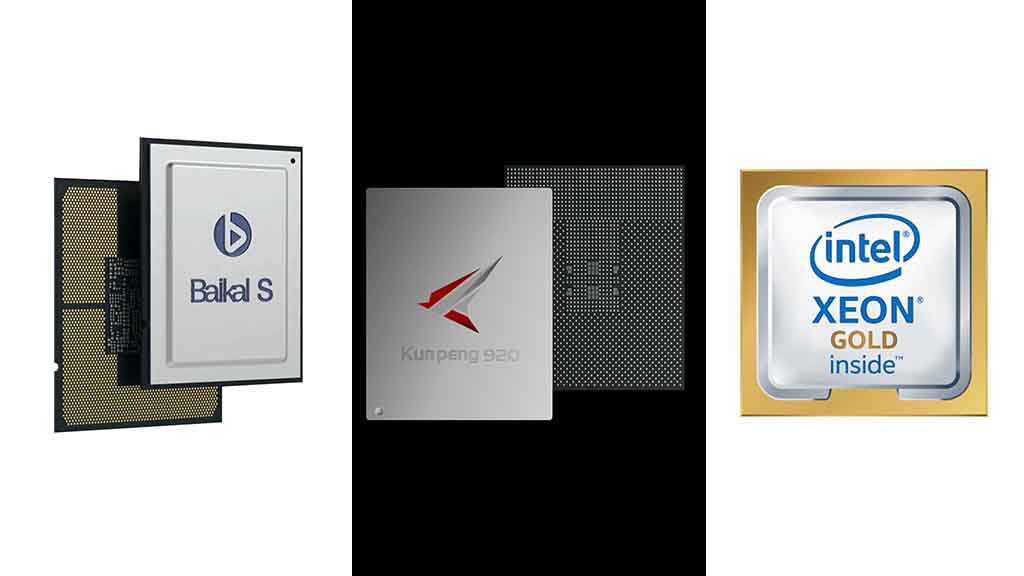News
Russia’s Baikal-S vs Huawei Kunpeng 920 vs Intel Xeon Gold 6230: Benchmark Test

Recently, Russia’s Baikal Electronics did a benchmark test of its server processor, Baikal-S against Huawei Kunpeng 920 and Intel Xeon Gold 6230. The test was meant to show that the chip could compete against its competitors.
Here are the specifications for these chips:
- Baikal-S includes 48 Arm Cortex-A75 cores on a 16nm process node with a 2 GHz base clock and 2.5 GHz boost clock.
- Huawei Kunpeng 920 also includes 48 TaiShan v110 cores with a 2.6 GHz clock speed and it’s processed with 7nm TSMC HPC technology. Its third-level cache is 48MB, and the thermal design power consumption reaches up to 158W.
- Intel Xeon Gold 6230 CPU has just 20 cores (40 threads) and base and boost clock speeds up to 2.1 GHz and 3.9 GHz. However, it would be better if the test include a new Xeon chip instead of a 6230 CPU.
AMD is not part of this benchmark competition because the tester said that Baikal-S was comparable to the 16-core EPYC 7351 from the Zen 1 period.
Let’s check the results of the Baikal-S vs Huawei Kunpeng 920 vs Intel Xeon Gold 6230 server benchmark.
CoreMark:
Baikal-S single-core 16302 points, multi-core 769354 points, 11.4% and 18.6% behind Kunpeng 920 18398 points, 945564 points, and 42.7% ahead of Xeon 6230 5390036 points in multi-core performance.
Stream:
Only multi-core performance, Baikal-S 83GB/s, 24.5% behind Kunpeng 920 110GB/s, 33.9% ahead of Xeon 6230.
Linpack:
The multi-core performance of Baikal-S is 353.3GFlops, 8.0% ahead of Kunpeng 920 327GFlops, but 58.4% behind Xeon 6230 849GFlops.
7-Zip:
Baikal-S has 86953 points for compression and 134271 points for decompression, 42.3% and 43.8% behind Kunpeng 920 150105 points and 239042 points respectively. Its decompression performance is 66.8% ahead of Xeon 6230 80508 points (compression performance is missing).
GeekBench 5:
Baikal-S single-core 498 points, 52.9% behind Xeon 6230 1058, multi-core 16511 points, leading Xeon 6230 9165 80.2, after all, 28 more cores.
Outcome:
For your information, the benchmark test environment and system setup have not been revealed, which is crucial to compare the outcome. Also, both Huawei and Xeon processors are old and can’t be taken as the current gen of the chip that both Huawei and Intel provide for servers.
Yet it indicates that Baikal-S has not too high nor too low in performance. Also, the company could do better with a lot more optimizations or the next version.
(source – cnews, Via – Tomshardware)






